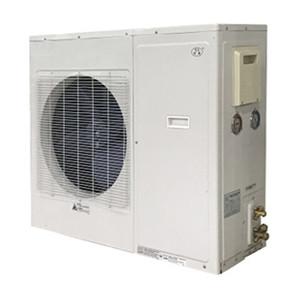How does a Heat Pump for a Pool Work
What is a swimming pool heat pump?
Heat pumps are a very popular way to heat your pool and reduce heating costs. Heat pump installation is as easy as other pool heaters. Additionally, advanced controls make operating the heat pump easier than ever. Overall, a heat pump will significantly reduce your operating costs and extend the pool season without breaking the bank.
How does a swimming pool heat pump work?
The device extracts heat from the air, intensifies it through a compressor, and transfers new heat to the water as it flows through the system. The process is clean, efficient and most importantly cost-effective. On average, electric pumps cost about 25% of the operating costs of a typical natural gas heater. Heat pumps maintain a constant, elevated temperature in your pool at a low cost, but they are not designed to heat quickly.
Gas heaters typically raise the pool's temperature by 1 degree per hour. Depending on the outside temperature, an electric pump may take 3 to 5 times longer. If the pump is installed as the primary heat source, with a natural gas heater as backup, then all your needs will be met. For example, if the spa is attached to a swimming pool, a natural gas heater will bring the spa to the desired temperature in a short period of time. Generally speaking, heat pumps can save expensive natural gas heaters for secondary use in emergencies.
By installing both devices in your heating system, you can continue to run a cost-effective pump and only use your natural gas system when you want to crank up the temperature after a long period of inclement weather, when using the spa, or preparing for late-night, outdoor gatherings. What is the actual cost of this product? Let’s look at the additional costs of this heating option and determine how long it will take to get a return on your investment.

What is the average cost?
For a +120,000 BTU heat pump, installation with minimal plumbing and wiring can cost anywhere from $4500 to $6500, depending on the manufacturer. Operating costs for a 900-square-foot swimming pool with a spa and waterfall and a natural gas heating system range from $800 to $1,200 per month, depending on usage and weather conditions.
Running the same pool with an electric heat pump system would cost about $250 to $450 per month. When you add in the operating costs of a backup gas heater, which ranges from $100 to $300 per month (depending on outdoor temperatures and usage habits), the average consumer can save $400 to $450 per month and recoup the initial cost. Heat pumps take 2.5 to 4.5 years.
Finally, pool owners can rest easy knowing that going green will keep them green!
The difference
A swimming pool heater is the heating system used in most private swimming pools. These heaters have been around for years and are typically powered by natural gas or propane fuel. Therefore, these gas heaters need to be connected to a natural gas line or a tank for storing propane gas. To heat pool water, gas pool heaters burn fuel in a combustion chamber and then transfer the heat to the pool water, thereby increasing its temperature.
Swimming pool heat pumps, on the other hand, heat water in a different way. The actual pump unit is electrically powered, extracting heat from the air heated by the sun, upgrading it with a compressor, and transferring it to the pool water. A pool heat pump can operate even when there is no sunlight, as long as the surrounding air temperature is at least 45 degrees Fahrenheit. Pool heaters provide the fastest method of heating your pool and are best suited for short-term heating of your pool.
For example, if you only use your pool on the weekends or often find yourself needing to heat your pool quickly before guests or visitors arrive, a gas pool heater will provide you with the fast and efficient performance you need. Gas pool heaters are also a good choice for pool owners who enjoy swimming regardless of weather conditions, as they can easily and effectively maintain any water temperature. As for pool heat pumps, this type of heating system is effective regardless of the weather.
However, as already mentioned, this is only true when the temperature is above 7.2 degrees Celsius. Heat pumps can easily maintain water temperatures in the 26 to 32 degrees Celsius range, making them ideal for homeowners who want to harness the energy of hot air but are unable to use a solar water heater due to roof structure or other factors. Pool heat pumps are the preferred heating option for athletic trainers and those who use pools for therapy.
Get more help
Leomon is a professional heat pump manufacturer. If you need to purchase a heat pump water heater, please contact us. Our heat pump experts will give you the best advice.





